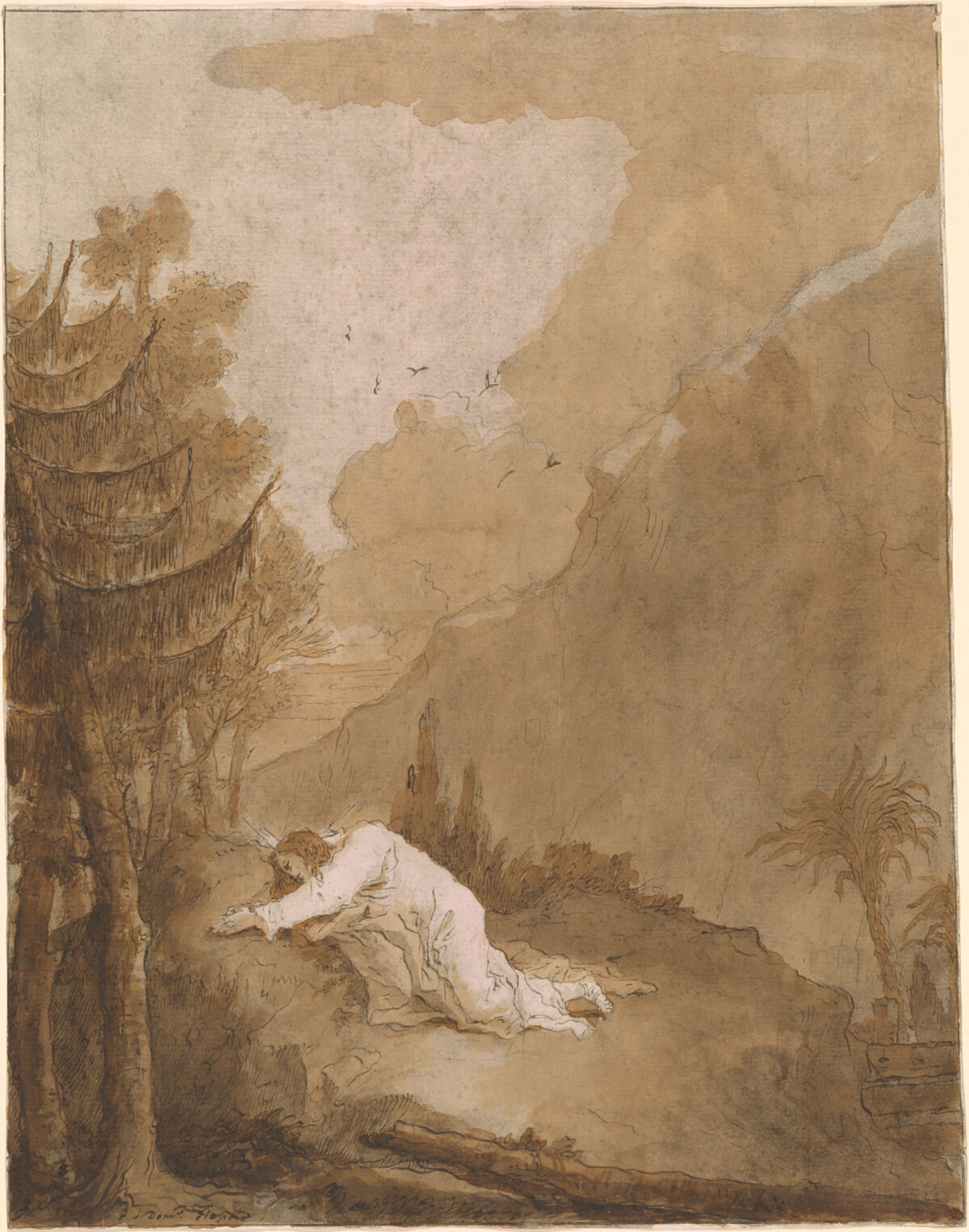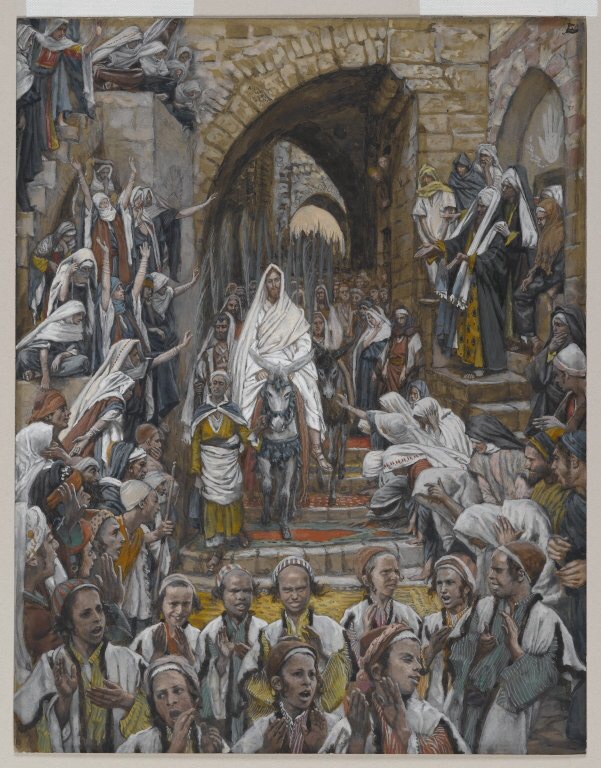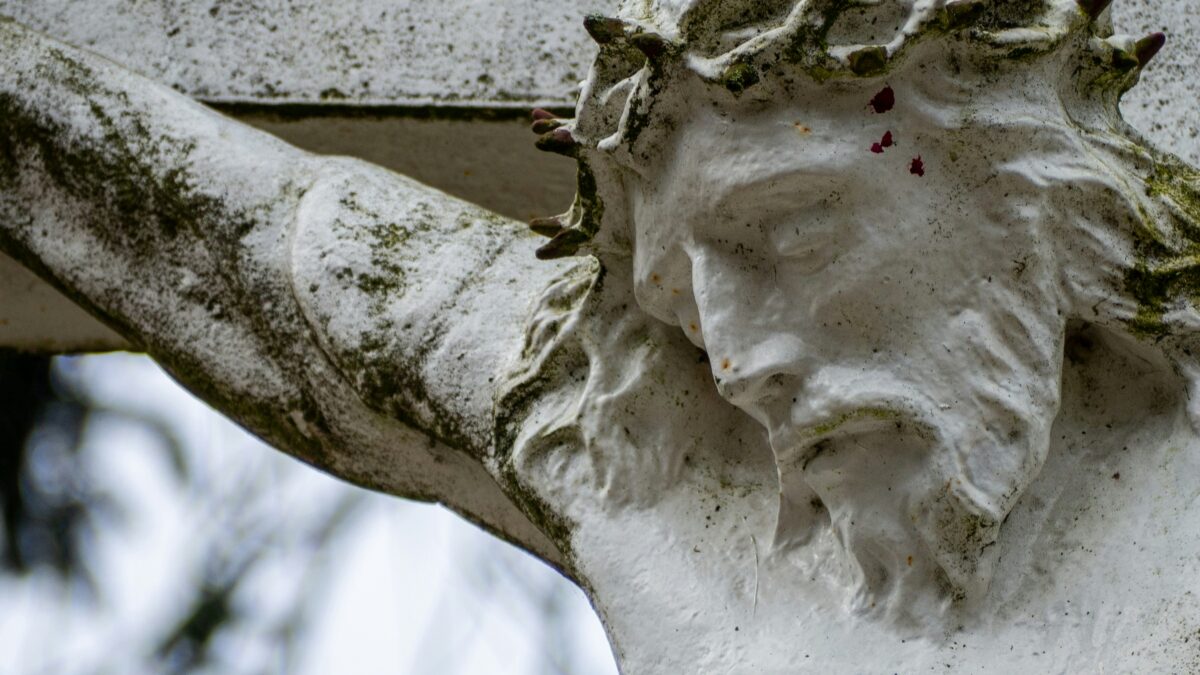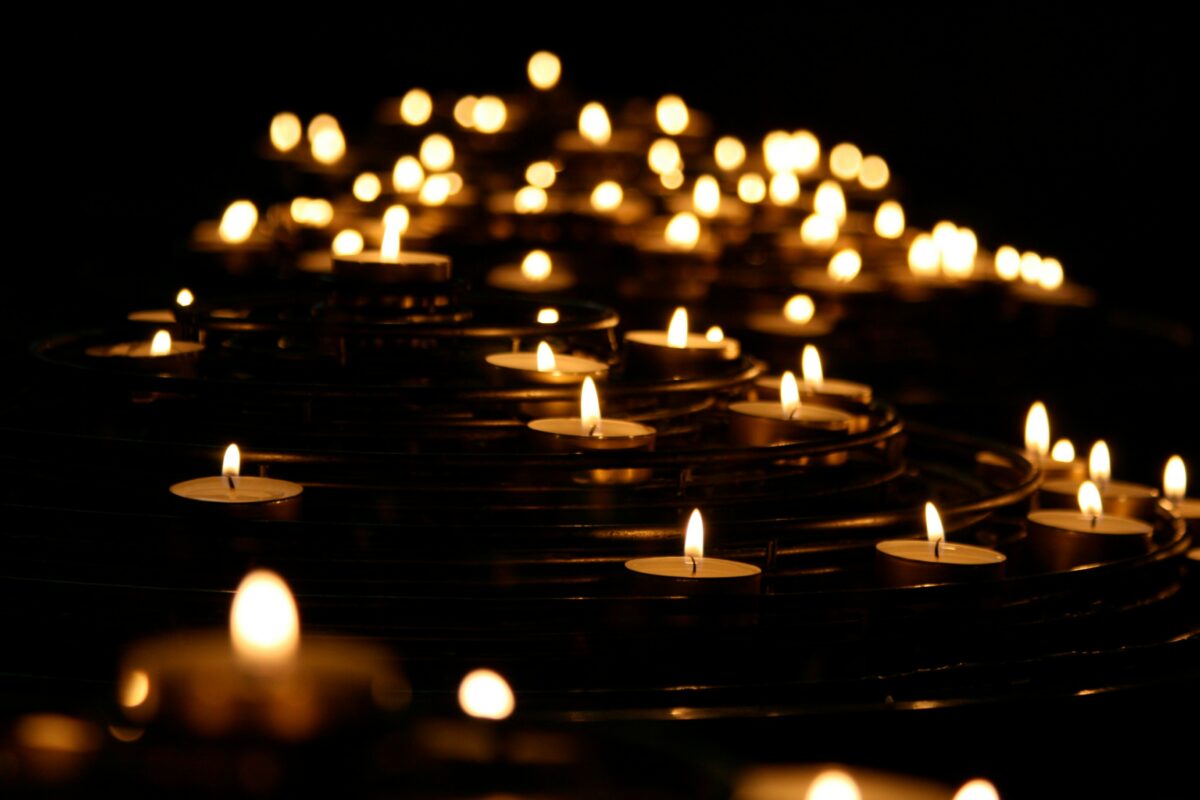It’s the first day of Passover – the feast of unleavened bread. Jesus sends two of his disciples ahead to make preparation for their meal. In the Luke account, Jesus tells his disciples exactly what will happen as they go on their way. A place is found for them, and they take their places for this holy meal. Jesus says, “I have earnestly desired to eat this Passover with you before I suffer” (Luke 21:15). As we know, especially from the Luke texts (Luke 22:1-46) the disciples don’t understand at all what is coming. But let’s join them at this meal.
It was a night like so many others. They had come to Jerusalem so many times through the years (perhaps even with Jesus) to gather with their people to celebrate their freedom from slavery. Every part of this meal was chosen with care to remind them of their flight from Egypt. Imagine the talk around the table that night. Between the prayers, and the songs, they eat the bitter herbs, the matza, the charoset, and drink the wine. As they are eating, Jesus moves to kneel before his friends and begins to wash their feet (John 13:2-17). It is a vivid picture –
“He laid aside his outer garments, and taking a towel, tied it around his waist. 5 Then he poured water into a basin and began to wash the disciples’ feet and to wipe them with the towel that was wrapped around him.” (John 13:3-4)
It’s easy to understand that this was hard for the disciples to take. The master should not be the servant. It is they who should be washing the feet of Jesus. I think if I had been there, I would have felt embarrassed, almost ashamed in this incredibly intimate moment. To be honest, my thoughts would probably go to how dirty my feet are, how evident is this scar or how hard this callous is? I would be sympathetic to Peter’s objection – “you shall never wash my feet!” Jesus’ response? “If I do not wash you, you have no share in me” (John 13:8).
John’s account does not include Christ’s taking of the bread and the wine. But Luke’s does. 17 And he took a cup, and when he had given thanks he said, “Take this, and divide it among yourselves. 18 For I tell you that from now on I will not drink of the fruit of the vine until the kingdom of God comes.” 19 And he took bread, and when he had given thanks, he broke it and gave it to them, saying, “This is my body, which is given for you. Do this in remembrance of me.” 20 And likewise the cup after they had eaten, saying, “This cup that is poured out for you is the new covenant in my blood. (Luk 22:17-20 ESV)
He has already spoken of Judas’ betrayal. There has been talk again which of them will be the greatest in His kingdom. Jesus rebukes them, saying: “let the greatest among you become as the youngest, and the leader as one who serves. 27 For who is the greater, one who reclines at table or one who serves? Is it not the one who reclines at table? But I am among you as the one who serves” (Luk 22:26-27 ESV). Whether they say it or not, they must have been thinking “this is crazy talk! This is so not what we expected!” And Jesus continues, by telling Peter, “before the night is out you will deny me three times.” What a night this has been! From the intimacy of their taking the Passover meal in that quiet upper room, to Jesus washing their feet, and then talk of betrayal and denial. Such contradiction! So many intense emotions! One author speaks of this contradiction like this:
“In Holy Thursday liturgy, we sense the beginning of a Eucharistic world and hear the clank of soldiers’ boots along a garden path at the same time.”1
I can almost hear the scraping of their chairs on the floor as Jesus leads them out of the room to go to the garden (well, I know they’re not sitting in chairs – but that sound is such a reminder of the noise of leaving.) Before they go, they sing a hymn and follow Jesus.
We don’t often think of that walk. I have no idea how long a walk it is. But the minds of the disciples must have been racing with all this talk of betrayal and death. Did they pass others on the path? Did they speak to anyone? Did they speak to each other, of their confusion and worry? The garden they were seeking was on the western slopes of the Mount of Olives. Jesus led them to a place there, called Gethsemane, and he left them to go to pray. In the Matthew account, he tells Peter and James and John (the two sons of Zebedee) that he is troubled and very sad. “Remain here and watch with me.” He leaves them and then we see his anguish, his cry to His Father, “My Father, if it be possible, let this cup pass from me; nevertheless, not as I will, but as you will.” (Mat 26:39 ESV) He returns to his disciples and finds them asleep. And he says to Peter, “So, could you not watch with me one hour?” (Mat 26:40).
“Could you not watch with me for even one hour?” In those words, I recognized my own weakness, my own unwillingness to do hard things, my inability to, no, even my objections to stay in my anxieties or fears or even pain. In Mark’s account this is repeated two more times. As Peter later denies him three times here they have failed three times to stay and watch with Christ as he wrestles with his struggle to be obedient to His father. Luke’s account says on his return to his friends, “he found them sleeping for sorrow” (Luke 22:45). Did Jesus need them to stay awake? In some ways, I believe he did. He had spent years with these disciples, these friends and to share his struggle, his wrestling with the will of God had to be so important to him. But it was so much more than that. I believe at the heart of those words, “Could you not watch with me even one hour” was his desire that his friends would learn how to withstand their own suffering, their own fears and pain.
Falling asleep in the threat of pain is not an uncommon response to trauma. I’ve experienced it, I have seen this in others. When I know I need to be present to whatever the Lord is wanting me to face, it is so easy to yawn, or go take a nap. In Matthew’s account Jesus says this, 41 Watch and pray that you may not enter into temptation. The spirit indeed is willing, but the flesh is weak.” (Mat 26:41 ESV)
“We fall asleep out of sorrow whenever we become so confused and overwhelmed by some kind of disappointment that we begin to act out of hostility rather than love, paranoia rather than trust, despair rather than hope. We fall asleep out of sorrow whenever we sell short what’s highest in us because of the bitterness of the moment.” 2
To keep watch means to stay present in the midst of the temptations to self-soothe, to disassociate, to check out. Jesus knows our hearts, he knows our capacity for fickleness, He calls us to wakefulness. He wants us to be aware of any part of us that shrinks back from His work in us in fear. Today, He calls us to name those things, to lay them at His feet and receive the help we so desperately need. There is a call in Jesus’ movements and prayers in the Garden for us who follow him to keep a spirit of wakefulness. He died to make us whole, and He lives to give us courage!
There is a virtue that can help us here. Paul called it long-suffering; Aquinas calls it longanimity, a virtue which “directs the soul towards a good for which we yearn, specifically a good that’s been a long time coming. So longanimity is a virtue for those who wait, it entails steadfastness in hopefully awaiting a long-delayed good.”3
These were the last words of Jesus to his friends before his arrest. This night has been such a cacophony of feelings! (feelings have sound right? Like the harsh sound of broken dishes?) From the intimacy of the shared meal, to having Jesus wash their feet, to these strange words about communion, to his warnings about betrayal and denial, and now to these finals words – “Could you not watch for even one hour?” Jesus has shown us He is and will always be with us – “washing our feet,” serving us, loving us even to the point of death.
In our watch and waiting this day – we can look toward the glorious vigil that is kept on Holy Saturday. I am not of a tradition which observes the Easter Vigil, (insert sad face) but I love the way our sorrow and grief from the last three days becomes the joy of a new dawn – a new day – a day of resurrection!
And in keeping with the observance of Passover, pray with me, this prayer from Easter Vigil…
O God, whose ancient wonders remain undimmed in splendor even in our day,
for what you once bestowed on a single people,
freeing them from Pharaoh’s persecution
by the power of your right hand,
now you bring about as the salvation of the nations
through the waters of rebirth,
grant, we pray, that the whole world
may become children of Abraham
and inherit the dignity of Israel’s birthright.
Through Christ our Lord.4
1 Chittister, Joan. The Liturgical Year. Thomas Nelson, 2009. p. 135.
2 Ron Rolheiser, https://ronrolheiser.com/the-agony-in-the-garden-the-place-to-stay-awake/
3 Teresa Smart, https://mcgrathblog.nd.edu/longanimity-the-virtue-of-waiting-for-god
4 From <http://pastoralliturgy.org/resources/1301OurStoryOfSalvation.php>







